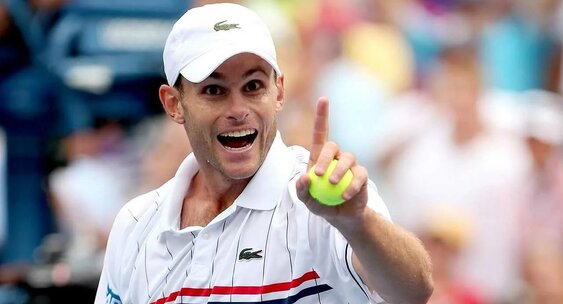Former world No. 1 Andy Roddick, known for his powerful serve and candid opinions, has once again aimed a scathing critique at the ATP Tour`s relentless schedule. His recent comments underscore a simmering concern within professional tennis: the physical and mental toll an increasingly packed calendar takes on its most valuable assets—the players.
The Perpetual Motion Machine of Professional Tennis
For those who follow the professional tennis circuit, the term “off-season” often feels like a misnomer. The ATP Tour is a global behemoth, sprawling across continents from January`s Australian Open lead-ups to November`s ATP Finals. It’s a perpetual motion machine, designed to deliver a constant stream of high-stakes matches and compelling narratives. But, as Roddick pointed out on his podcast, “Served,” this seemingly endless grind comes at a significant cost.
“The calendar is still sucky. It was sucky and it`s getting worse. And who suffers? Most often the fans. The players, of course. You have to find a balance.” — Andy Roddick
This isn`t merely the lament of an ex-player looking back fondly on a simpler era. Roddick`s observations are rooted in the current reality of the sport, where players are pushed to their absolute limits, week in and week out. The expectation, it seems, is for athletes to perform with robotic perfection and superhuman endurance for eleven months straight.
When Stars Flicker: The Cost of Relentlessness
Roddick`s criticism gains undeniable weight when viewed through the lens of recent events. The tennis world has witnessed its brightest stars struggling under the immense pressure:
- Carlos Alcaraz, the dynamic Spaniard, had to withdraw from a significant tournament in Shanghai due to lingering issues, a clear indication that even the sport`s most physically gifted talents are not immune.
- Jannik Sinner, another rising force, was forced to retire mid-match in Shanghai. A promising run cut short, leaving fans, and presumably Sinner himself, deeply frustrated.
- Even established players like Alexander Zverev have openly acknowledged feeling “out of form” for significant portions of the season. This isn`t a lapse in skill; it`s the inevitable consequence of mental and physical fatigue accumulating over months of intense competition.
These aren`t isolated incidents. They are symptoms of a systemic issue. The ATP calendar, in its current iteration, demands an impossible level of sustained peak performance. Players are constantly travelling, adjusting to different time zones, playing on varied surfaces, and competing under immense pressure. To expect them to be in “ideal physical and psychological condition” consistently is, quite frankly, an exercise in futility, bordering on cruel.
The Unseen Burden: Beyond the Baseline
While the physical injuries—twisted ankles, strained muscles, lingering niggles—are visible manifestations of the calendar`s impact, the mental fatigue often goes unnoticed. The relentless pursuit of ranking points, prize money, and glory can lead to burnout, affecting a player`s focus, motivation, and overall well-being. This, in turn, impacts the quality of play, making matches less compelling and the sport less vibrant.
Furthermore, Roddick astutely highlights the ripple effect on the fans. Imagine buying tickets, planning a trip, or eagerly anticipating a marquee match, only for a top seed to withdraw or retire. It`s a genuine disappointment, eroding trust and enthusiasm. The very people who fuel the sport`s commercial engine—the passionate spectators—are often left feeling short-changed.
Seeking Equilibrium: A Path Forward?
Roddick isn`t merely complaining; he`s advocating for a fundamental re-evaluation. The “balance” he speaks of is crucial for the long-term health of professional tennis. This isn`t about coddling athletes; it`s about ensuring their careers are sustainable, allowing them to perform at their best more consistently, and ultimately, safeguarding the spectacle for the fans.
The conversation around reforming the ATP calendar is not new, but Roddick`s blunt assessment provides a much-needed jolt. Potential solutions are complex, involving negotiations between players, tournaments, federations, and sponsors. They might include:
- A shorter, more concentrated season.
- Mandatory rest periods for top players.
- Regional clusters of tournaments to reduce travel.
- Re-evaluating the points structure to reduce pressure on players to compete excessively.
Whatever the eventual solution, one thing is clear: the current model is unsustainable. Andy Roddick`s call to action is a powerful reminder that while the show must go on, it`s paramount to ensure the performers are not sacrificing their well-being, and in turn, the quality of the show itself, on the altar of an unforgiving schedule. For the sake of the players, the fans, and the sport`s enduring legacy, the ATP must listen and adapt.

